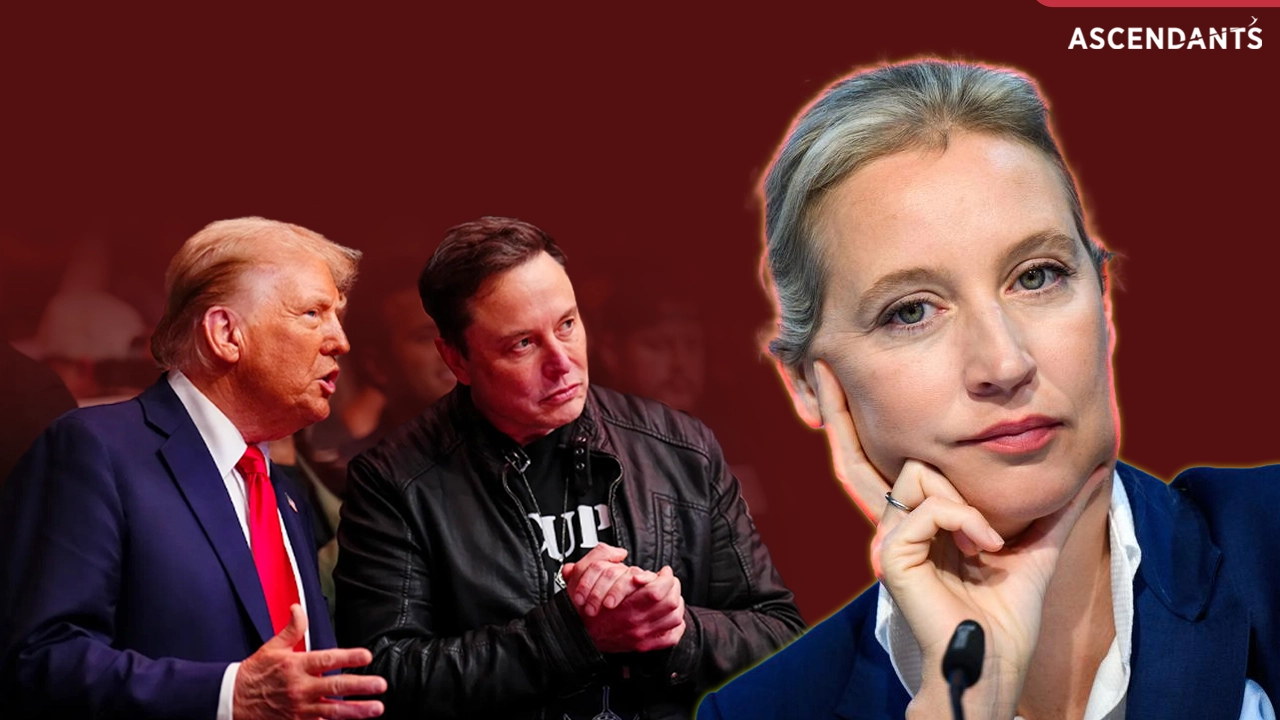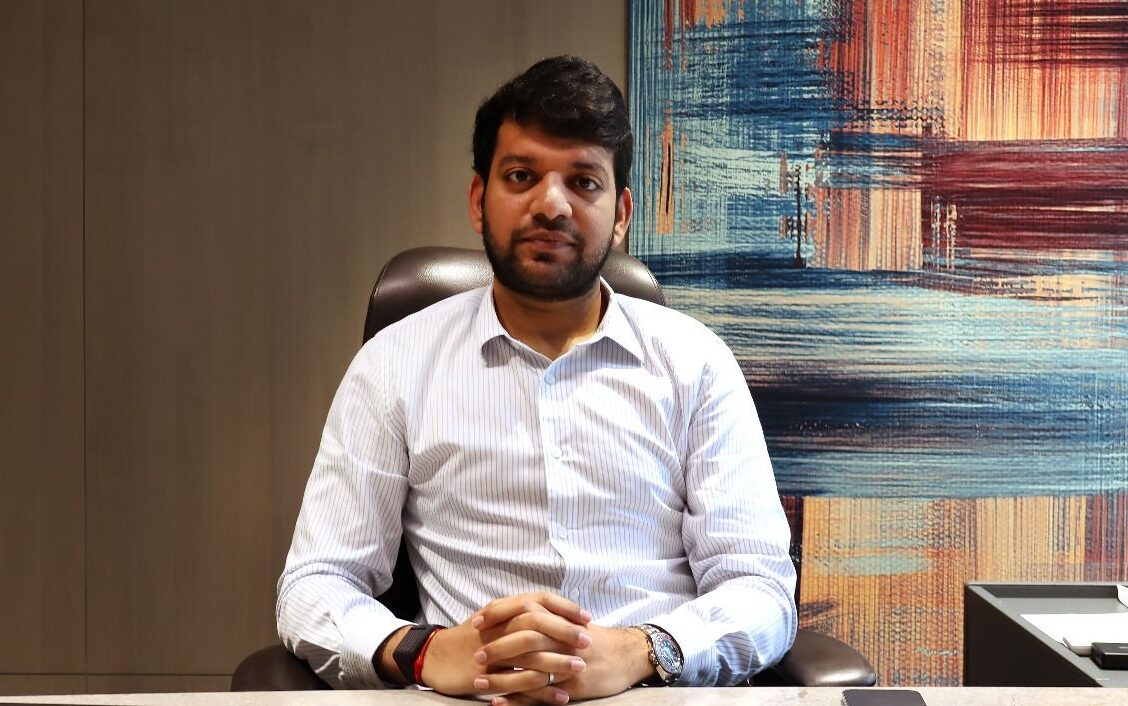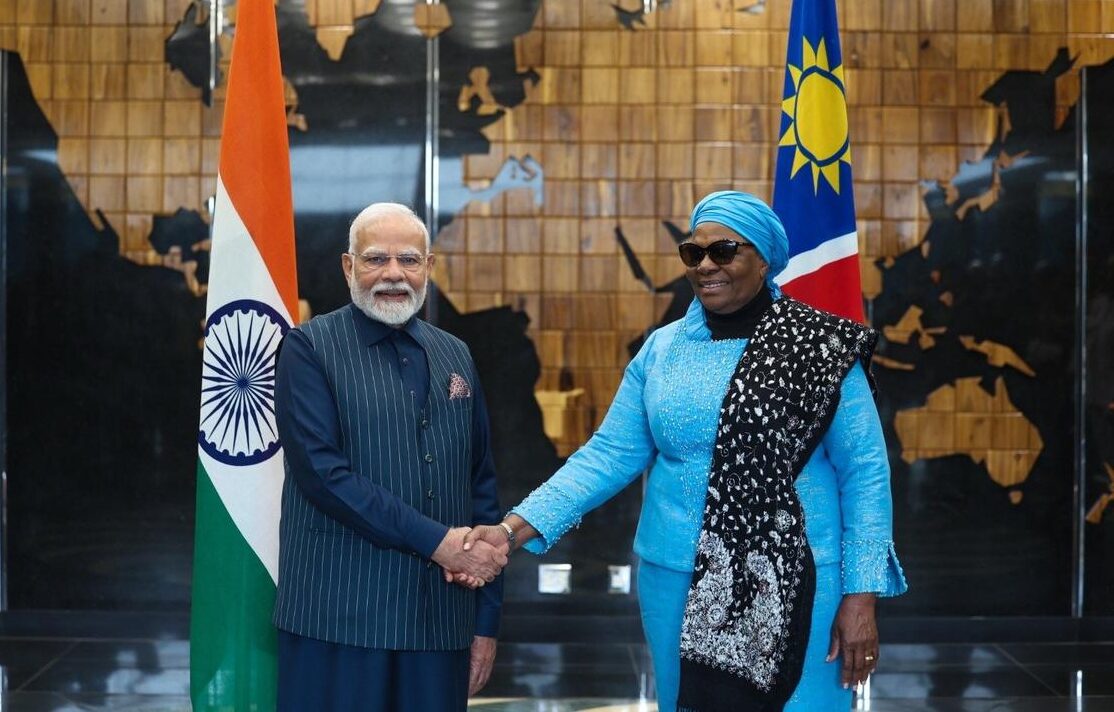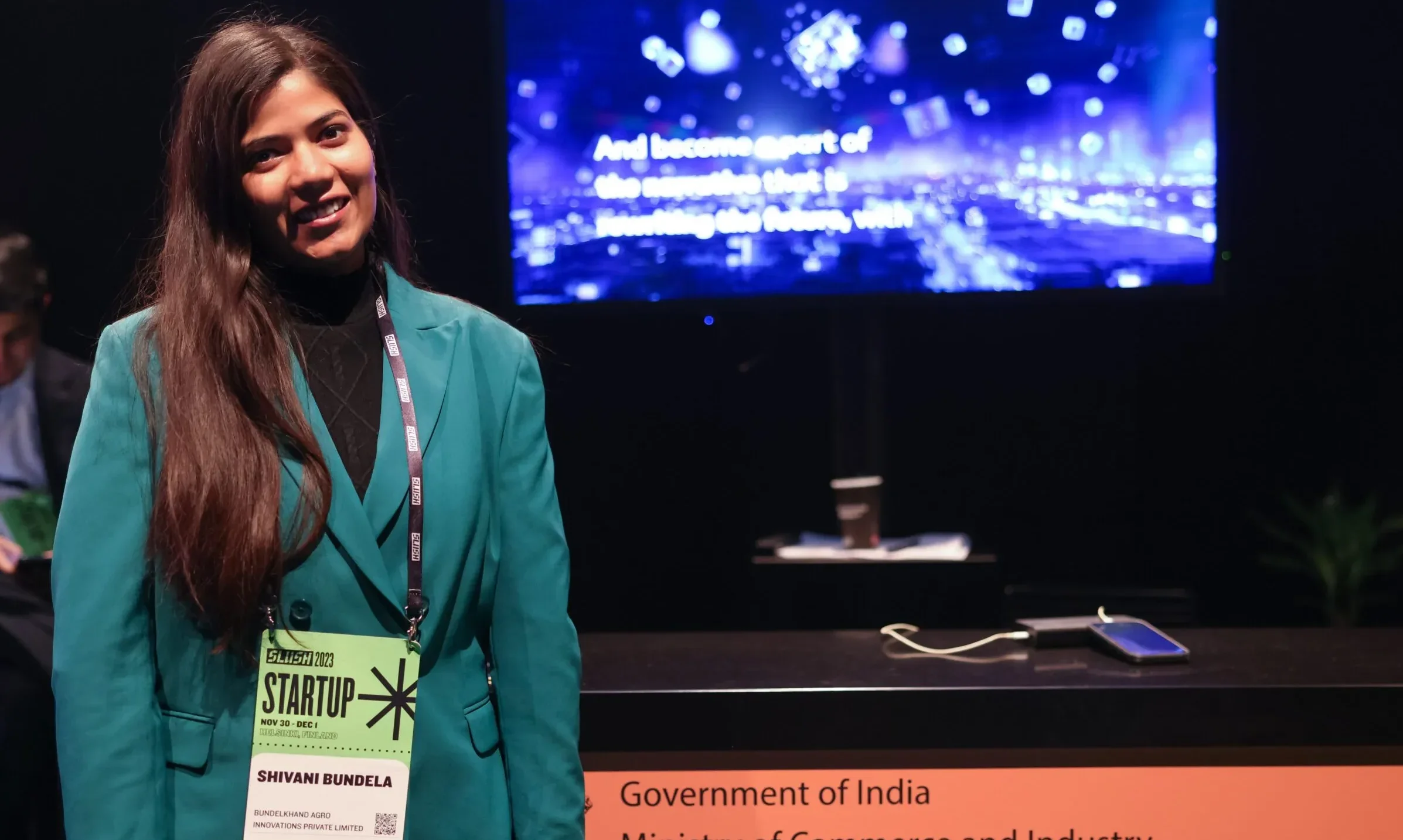Germany’s politics are also changing dramatically with the historic surge of far-right Alternative für Deutschland (AfD) party. With co-leader Alice Weidel at the helm, the AfD has doubled its vote in recent elections, indicating a radical change in the politics of the nation. This is not a solitary phenomenon; rather, it is indelibly linked with global forces, especially the participation of former U.S. President Donald Trump and business tycoon Elon Musk. The political changes of this kind have implications beyond local politics, including the ongoing Russia-Ukraine war.
Alice Weidel: A Complex Political Figure
Born on February 6, 1979, in Gütersloh, West Germany, Alice Weidel has been at the helm of the AfD since June 2022. Beyond her political career, Weidel presents a unique personal narrative that contrasts with the traditional values often associated with far-right movements. She has been in a relationship with Swiss film producer Sarah Bossard since 2009. Bossard, of Sri Lankan origin, was adopted by a Swiss couple as an infant. The couple resides in Einsiedeln, Switzerland, where they are raising their two sons.
Weidel’s family background provides an intriguing juxtaposition against the conservative and nationalist ideologies that the AfD often promotes. This multifaceted identity underscores the complexities within political figures and their personal lives.
Elon Musk’s Endorsement and Economic Ties
The AfD’s rise has been supported by the backing of influential international figures, including Elon Musk. Tesla’s CEO, who has grown more involved in international politics, openly endorsed the AfD by saying, “Only the AfD can save Germany.” The endorsement reflects a wider pattern in which Musk has offered sympathies for far-right political movements throughout Europe.
After the AfD’s election success, Musk personally congratulated Weidel, emphasizing a tightening alliance. Weidel reciprocated by mentioning these international relations, such as her contacts with members of the Trump administration.
In addition to political support, economic interests also tie Musk and the AfD together. Musk has offered to build a new Tesla factory in Germany, aligning with the AfD’s business-friendly platform and economic revival promises. This investment would strengthen Germany’s economy and be a concrete demonstration of the AfD’s dedication to promoting international business relations. Nevertheless, Musk’s political leanings have not gone without repercussions. Tesla’s sales in Europe fell by almost 50% in January 2025, demonstrating consumer reaction against Musk’s participation in far-right politics.
Germany’s Relationship with Russia: A New Direction?
Germany’s foreign policy, specifically its Russia policy, may change under the stewardship of Weidel. The AfD has traditionally called for a pragmatic approach towards Russia, where economic ties would take precedence over conflict. This view defies the overall European Union approach towards sanctions and diplomatic isolation of Russia.
Weidel’s leadership can thus lead Germany toward a more engagement foreign policy, possibly upsetting the EU’s common approach to Russia. This change is especially significant amid the Ukraine-Russia war, where shifting alliances might turn the geopolitical scales.
The Trump-Macron Dialogue and European Dynamics
Against this backdrop, the recent visit of former U.S. President Donald Trump to French President Emmanuel Macron is important. As the EU’s dominant powers, France and Germany determine much of the policy direction of the union. The rise of AfD threatens the traditional Franco-German axis that has traditionally been the source of EU stability.
Macron’s talks with Trump would have probably addressed issues of AfD’s rise and its possible implications for EU cohesion. The party’s Euroscepticism could result in heightened tensions within the bloc, making it harder to make decisions on key matters, ranging from economic policies to security cooperation.
At the same time, a new development in international diplomacy witnessed the U.S. being able to get a United Nations Security Council resolution passed that urged an accelerated conclusion to the war in Ukraine. Supported by Russia and China, this surprise diplomatic action marks a shift in global power politics. Interestingly, France and the UK abstained from voting, laying bare cracks in Western solidarity. These events indicate that the U.S. is taking a more unilateral path on the world stage, maybe at the cost of longstanding alliances.
What Lies Ahead for Germany?
Alice Weidel’s election victory and the rise of the AfD represent a turning point in German politics, which is becoming increasingly dominated by international figures like Trump and Musk. This changing political climate spreads beyond Germany and the EU, affecting more significant geopolitical trends, including the Ukraine-Russia conflict.
As old alliances are strained and new ones form, nations need to adjust to protect their interests. The next few years will tell if the AfD’s political clout is a fleeting phenomenon or a new direction in German and European politics.
Also Read: Does US’s Gold Card trump over Dubai’s Golden Visa?



























GovAssist Service
It’s both fascinating and a bit unsettling to see how international personalities are influencing domestic politics in Germany. Musk’s open endorsement of the AfD, stating that “Only the AfD can save Germany,” is particularly striking. Given his global platform, such statements can have significant ripple effects.
The article also delves into the complexities of Alice Weidel’s leadership within the AfD. Her personal life, being in a relationship with a Swiss film producer of Sri Lankan origin, contrasts with the party’s nationalist stance. This juxtaposition highlights the multifaceted nature of political figures and the ideologies they represent.
Moreover, the potential economic implications, like Musk’s proposal to build a new Tesla factory in Germany, add another layer to this narrative. While such investments could boost the economy, they also intertwine business interests with political ideologies, which can be a double-edged sword.